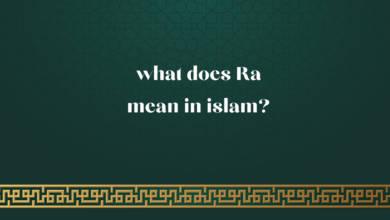What is Sadaqah in Islam?

Sadaqah in Islam: The Benevolent Act of Giving
In Islam, the concept of charity holds immense significance, reflecting the religion’s emphasis on compassion, empathy, and community welfare. One of the forms of charity prescribed by the faith is known as “Sadaqah.” Derived from the Arabic word “صدقة” which means sincerity and truthfulness, Sadaqah encapsulates the act of giving generously and selflessly to those in need. Beyond its material implications, Sadaqah carries a spiritual weight that transcends the tangible benefits, fostering a sense of empathy and social responsibility among Muslims.
The Essence of Sadaqah:
Sadaqah is characterized by its voluntary nature, setting it apart from other obligatory forms of charity in Islam, such as Zakat. While Zakat is a mandatory almsgiving to be paid annually by eligible Muslims, Sadaqah is a discretionary act of giving that can be performed at any time and in various forms. This flexibility allows Muslims to contribute to charitable causes based on their capacity and the urgency of the need.
Forms of Sadaqah:
Sadaqah can take numerous forms, each carrying its own unique significance:
Financial Donations: This is the most common form of Sadaqah, where Muslims give money or material possessions to those in need. It can be as simple as offering spare change to a beggar or making substantial donations to charitable organizations.
Acts of Kindness: Acts of kindness, even if they aren’t monetary in nature, are considered a form of Sadaqah. Helping someone in need, providing assistance, or even sharing knowledge are all ways to practice Sadaqah.
Smiles and Good Words: Even a simple smile or a kind word can be considered a form of Sadaqah. Positive interactions and words of encouragement can uplift someone’s spirits and contribute to their emotional well-being.
Time and Skills: Sharing one’s time and skills for the betterment of others is also a form of Sadaqah. This could involve volunteering, mentoring, or offering professional expertise to help those who are less fortunate.
Duas (Supplications): Praying for the well-being and relief of others, especially those facing hardships, is a form of Sadaqah. This reflects the spiritual aspect of charity, where the intention to alleviate suffering is just as important as the material giving.
Spiritual Significance:
Sadaqah goes beyond the act of giving; it cultivates humility, gratitude, and a sense of responsibility within the giver. By parting with their possessions for the sake of those in need, Muslims detach themselves from the material world and demonstrate their obedience to Allah’s commandments. Sadaqah is believed to purify the heart, cleanse the soul, and strengthen the bond between believers and their Creator.
Rewards and Blessings:
Islamic teachings emphasize the abundant rewards for those who practice Sadaqah with sincerity. The Quran and Hadiths (sayings of Prophet Muhammad) highlight the idea that every act of Sadaqah has the potential to garner blessings and merits in this world and the hereafter. Muslims are encouraged to give generously, trusting in Allah’s promise of manifold rewards and blessings for their benevolence.
Conclusion:
Sadaqah, rooted in the teachings of Islam, is a profound expression of compassion and social responsibility. Through this act of voluntary giving, Muslims embody the principles of empathy and kindness, contributing to the well-being of society at large. It serves as a reminder that material possessions are transient and that true wealth lies in the act of sharing with those in need. By engaging in Sadaqah, Muslims not only uplift the lives of the recipients but also enrich their own spiritual journey, fostering a sense of unity and mutual support within the Islamic community and beyond.
FAQs about Sadaqah in Islam
What is Sadaqah in Islam?
Sadaqah, often referred to as voluntary charity, is a concept in Islam that involves giving to those in need without any expectation of receiving something in return. It’s a selfless act of kindness aimed at helping those less fortunate.
How is Sadaqah different from Zakat?
While both Sadaqah and Zakat involve giving to those in need, Zakat is a mandatory form of charity that is obligatory for Muslims who meet specific wealth criteria. Sadaqah, on the other hand, is entirely voluntary and can be given at any time and in any amount.
What are the benefits of giving Sadaqah?
Giving Sadaqah is believed to purify one’s wealth and soul, earn spiritual rewards, and strengthen the bond between the giver and Allah. It’s also a means of expressing gratitude for one’s blessings and a way to help alleviate the suffering of others.
Can Sadaqah only be given in the form of money?
No, Sadaqah can take various forms, including monetary donations, offering food, clothing, shelter, education, and even performing acts of kindness, like helping someone in need. The intention behind the action is what matters.
Is there a specific time to give Sadaqah?
Sadaqah can be given at any time, and there are no specific restrictions regarding when to give it. It can be a spontaneous act or a regular practice, as long as the intention is sincere.
Can non-Muslims give Sadaqah?
Yes, non-Muslims can give Sadaqah if they wish to contribute to charitable causes. Islam encourages acts of kindness and charity to benefit society as a whole, regardless of religious affiliation.






